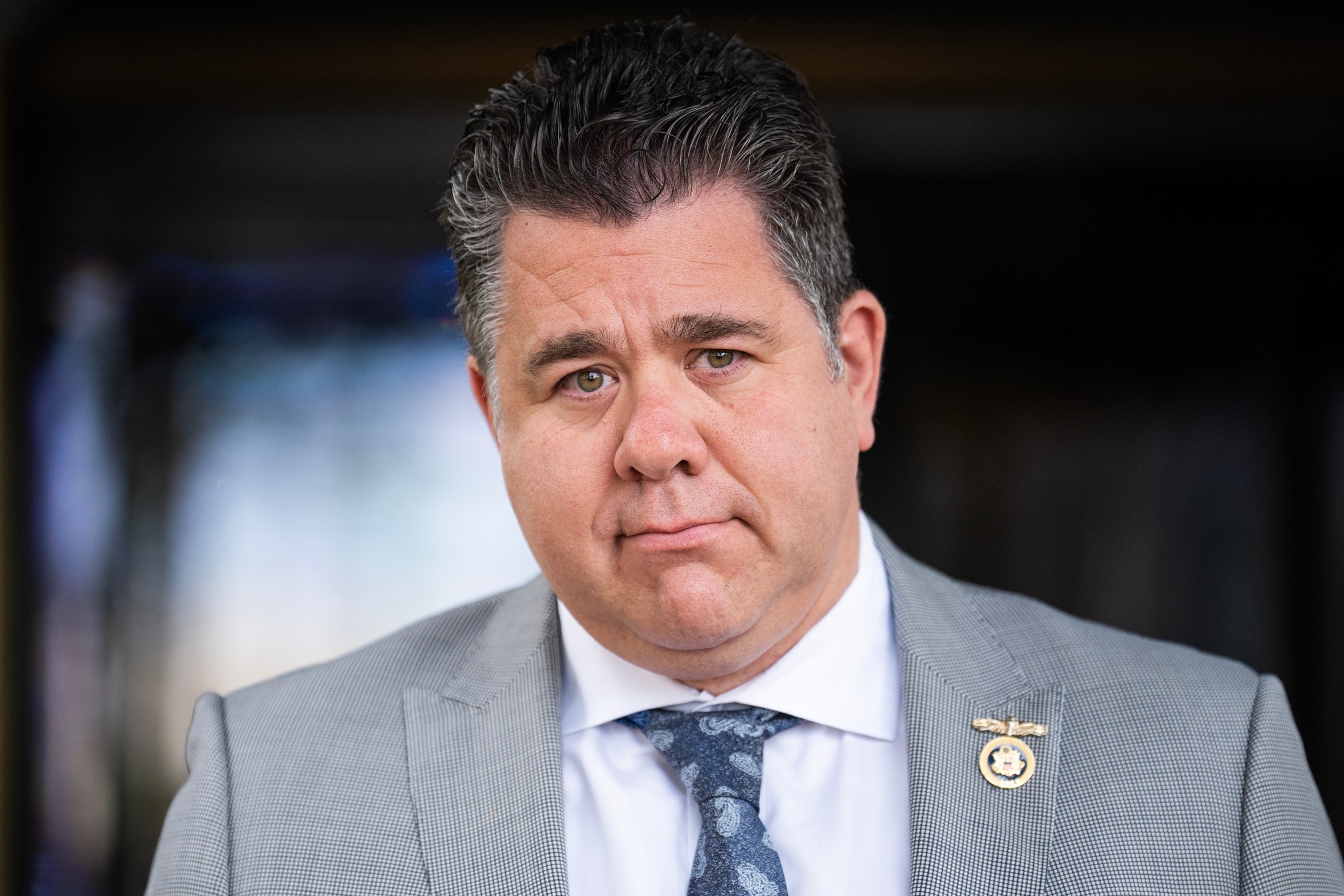

President Donald Trump on Tuesday told Senate Republicans to lock themselves in a room if necessary to work out their differences and pass the megabill that will fund his second-term agenda.
“To my friends in the Senate, lock yourself in a room if you must, don’t go home, and GET THE DEAL DONE THIS WEEK,” Trump posted on his social media platform while on his way to the NATO summit in the Netherlands. “Work with the House so they can pick it up, and pass it, IMMEDIATELY. NO ONE GOES ON VACATION UNTIL IT’S DONE.”
Both the Senate and House are under pressure to reconcile differences between the House and Senate versions of the bill and get it to Trump’s desk by July 4.
Speaker Mike Johnson warned House Republicans Tuesday that their Independence Day celebrations may be in jeopardy as the House waits for the Senate to complete its changes to the One, Big, Beautiful Bill Act and the speaker sticks to the Fourth of July deadline.

While the House is scheduled to leave town Friday for a week back in their districts, the speaker set off his own fireworks -- telling his conference that members will not be dismissed for recess until the House approves the Senate’s changes.
“I said to keep your schedules flexible. July 4 is always a district work period. This is tradition, so everybody can go home and celebrate the Fourth of July with their constituents and their families,” Johnson said. “But this -- there's nothing more important that we should be involved in, or can be involved in than getting one big, beautiful bill to the president's desk. So if the Senate does its work on the timeline that we expect, we will do our work as well. And I think everybody's ready for that.”
The bill would make the Trump 2017 tax cuts permanent, allocate additional funding for border security and the Department of Defense, scale back Medicaid and SNAP benefits, limit taxes on tips and overtime, change state and local tax caps, and do far more.
Republicans are attempting to pass the bill using budget reconciliation, a procedure that allows them to sidestep Senate rules that normally require 60 votes to pass legislation and to instead pass the bill with a simple majority.
Senate Republicans met behind closed doors Monday night to go over the latest contours of their version of the bill as Senate Parliamentarian Elizabeth MacDonough continued to go through the bill to ensure provisions are within the scope of using reconciliation.
Her rulings have already rankled some Republican plans, and Monday’s meeting appeared to have focused largely on how they intend to retool their provisions for compliance.

A lot remains outstanding, but there’s general optimism in the conference that a floor vote this week is still possible.
The meeting also took into account “considerations as to what the president wants,” according to Sen. Shelley Moore Capito, R-W.Va., who said she still expects the bill to make it to the floor later this week.
Johnson said Tuesday he expects the Senate to vote on Friday or Saturday -- after the lower chamber had been expected to conclude its legislative work period -- potentially pushing the House’s consideration of the Senate’s changes into next week.
There remains a number of challenges that Republicans must address between now and then. Here’s where things stand on some of the key provisions:
The House and Senate have been divided on this issue as Senate Republicans have made clear they want to modify language in the House bill that some House moderates could balk at.
Sen. Markwayne Mullin, R-Okla., who has been leading negotiations over SALT said Monday that the Senate has more or less reached a place of “acceptance” on SALT. The proposal, he said, won’t touch the $40,000 cap negotiated in the House, but it will alter the income threshold.
“It’s not going to lose any votes,” Mullin said, speaking for his conference. “But, as I said, it’s not a joyful spot for any of us to be in. I’ll be happy when this is done, and then we can move on.”

But Rep. Nick LaLota, R-N.Y., told reporters Tuesday that the SALT caucus of five House Republicans has banded together to create a bloc that could defeat a vote given Johnson’s slim three-vote majority.
“I hope they recognize the reality that five very salty House Republicans will vote no if they break apart on that deal,” LaLota said.
Capito said that provisions on SNAP were the most “upended” by the parliamentarian. Her ruling threatens to lessen the savings to the federal government that Republicans are hoping the bill will achieve.
Some of Monday’s meeting focused on the parliamentarian’s ruling that a provision that would require states to share the cost of the SNAP was out of order.
Sen. John Boozman, R-Ark., chairman of the Senate Agriculture Committee that has jurisdiction over SNAP, said that Republicans are aiming to retool the SNAP provision to make it compliant with Senate rules.
“What we’re trying to do is give the states more time to understand what they’re dealing with so they can respond,” Boozman said.
Perhaps the biggest thorn in the Senate’s side right now is an ongoing debate about Medicaid cuts, -- specifically how alterations of the provider tax rate could hamstring rural hospitals in some states.
Sen. Josh Hawley, R-Mo., suggested it could be the biggest obstacle to securing his vote and the votes of key House members.
“I really think this rural hospital deal is a big deal. I think it has the potential to bog this way down,” Hawley said. “I just hope leadership will come up with a solution that will keep rural hospitals open.”
Hawley said he could support a rural hospital fund, an idea that has been floated, but no details about how it would be administered have become available.
ABC News' Lauren Peller contributed to this report.
